
Exploring Liwonde National Park: Malawi's Natural Gem
Liwonde National Park, located in the southern part of Malawi, is a haven for wildlife enthusiasts and nature lovers. This park offers a unique blend of lush landscapes, meandering rivers, and a diverse range of wildlife. The Shire River, which runs through the park, provides a lifeline for many species and offers visitors the chance to see animals up close on boat safaris. Elephants, hippos, and crocodiles are often spotted along the riverbanks. The park is also a birdwatcher's paradise, with over 400 species recorded. From the majestic fish eagle to the colorful kingfisher, the variety of birdlife is astounding. The park's diverse habitats, including floodplains, miombo woodlands, and grasslands, support this rich avian diversity. Visitors to Liwonde National Park can engage in various activities such as game drives, walking safaris, and boat cruises. The park is home to several lodges and campsites that offer comfortable accommodations and immersive experiences. Whether you're looking to capture stunning photographs, learn about conservation efforts, or simply enjoy the tranquility of nature, Liwonde National Park is a must-visit destination in Malawi.
Local tips in Liwonde National Park
- Visit during the dry season (April to October) for the best wildlife viewing opportunities.
- Book a boat safari to see elephants, hippos, and crocodiles along the Shire River.
- Bring binoculars and a bird guide to fully appreciate the park's incredible birdlife.
- Stay in one of the park's lodges or campsites for an immersive experience.
- Wear comfortable, neutral-colored clothing for safaris and pack a good pair of walking shoes.
Exploring Liwonde National Park: Malawi's Natural Gem
Liwonde National Park, located in the southern part of Malawi, is a haven for wildlife enthusiasts and nature lovers. This park offers a unique blend of lush landscapes, meandering rivers, and a diverse range of wildlife. The Shire River, which runs through the park, provides a lifeline for many species and offers visitors the chance to see animals up close on boat safaris. Elephants, hippos, and crocodiles are often spotted along the riverbanks. The park is also a birdwatcher's paradise, with over 400 species recorded. From the majestic fish eagle to the colorful kingfisher, the variety of birdlife is astounding. The park's diverse habitats, including floodplains, miombo woodlands, and grasslands, support this rich avian diversity. Visitors to Liwonde National Park can engage in various activities such as game drives, walking safaris, and boat cruises. The park is home to several lodges and campsites that offer comfortable accommodations and immersive experiences. Whether you're looking to capture stunning photographs, learn about conservation efforts, or simply enjoy the tranquility of nature, Liwonde National Park is a must-visit destination in Malawi.
When is the best time to go to Liwonde National Park?
Iconic landmarks you can’t miss
Lake Malawi National Park
Explore the breathtaking beauty and diverse wildlife of Lake Malawi National Park, a UNESCO World Heritage Site and paradise for nature lovers.
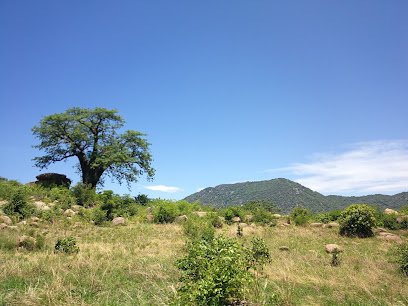
Blue Zebra Island Lodge
Discover tranquility at Blue Zebra Island Lodge on Nankoma Island, where luxury meets nature in the heart of Lake Malawi.

Mvuu Camp
Experience the wild charm of Mvuu Camp in Liwonde National Park, where luxury meets nature in a stunning safari adventure.
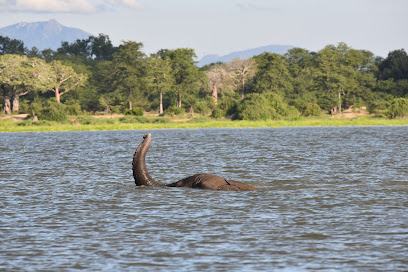
Majete Wildlife Reserve
Explore Majete Wildlife Reserve, a conservation success story and a paradise for wildlife lovers in Malawi, offering unforgettable safari experiences.
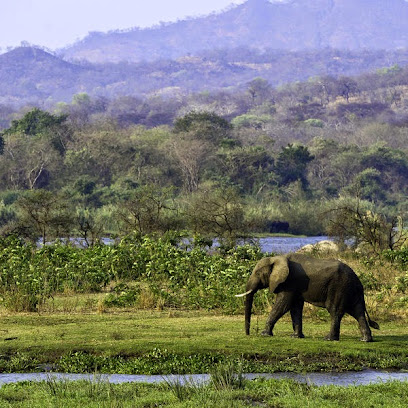
Hippo View Lodge
Discover the beauty of nature at Hippo View Lodge, your gateway to adventure in Liwonde National Park, Malawi.

Kutchire Lodge
Discover the beauty of Liwonde National Park from the comfort of Kutchire Lodge, your serene retreat in Malawi’s wilderness.
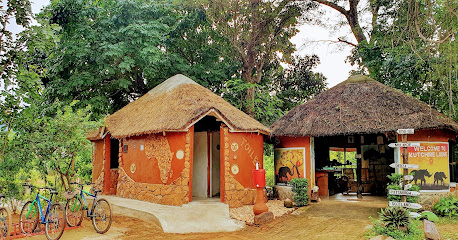
Kasungu National Park
Explore the diverse ecosystems and rich wildlife of Kasungu National Park, a hidden gem in Malawi offering adventure and cultural insights.
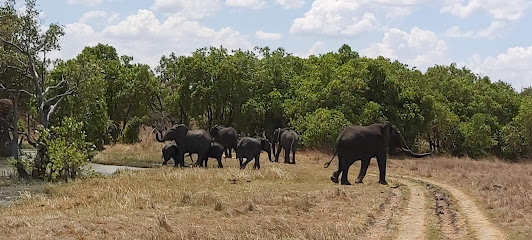
Likhubula Falls (Dziwe la Nkhalamba)
Explore the serene beauty of Likhubula Falls in Mulanje, Malawi - a must-see natural wonder for every traveler seeking tranquility and adventure.
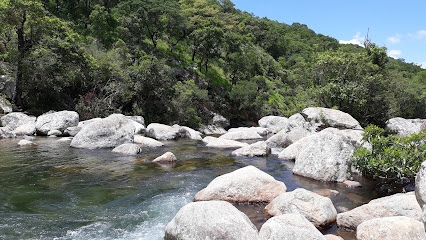
Williams Falls
Discover the breathtaking beauty of Williams Falls in Zomba, Malawi—a natural wonder perfect for relaxation, adventure, and unforgettable memories.
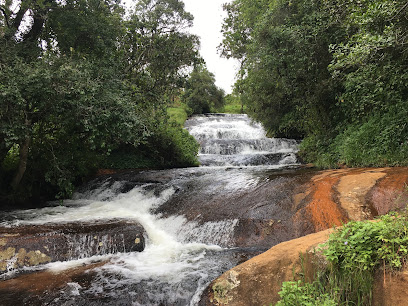
Liwonde National Park Main Entrance Gate
Explore the breathtaking landscapes and vibrant wildlife of Liwonde National Park, Malawi's premier destination for nature lovers and adventure seekers.
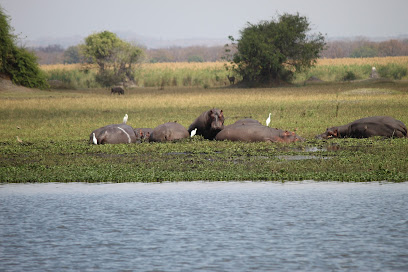
Mulanje Massif
Explore Mulanje Massif: Experience breathtaking views, diverse wildlife, and rich culture in one of Malawi's most stunning mountain ranges.
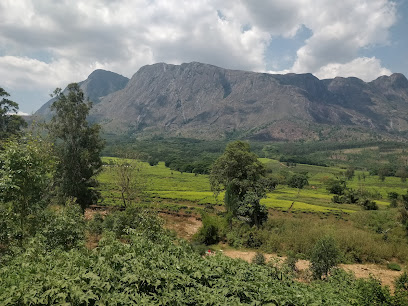
Mvuu Wilderness Lodge
Experience the perfect blend of luxury and nature at Mvuu Wilderness Lodge in Liwonde National Park, where wildlife adventures await.
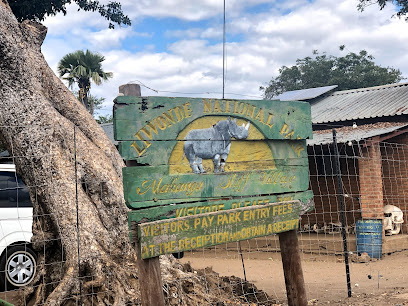
World War I Memorial
Discover the World War I Memorial in Lilongwe, a serene tribute to courage and sacrifice, offering a reflective escape amidst beautifully landscaped gardens.
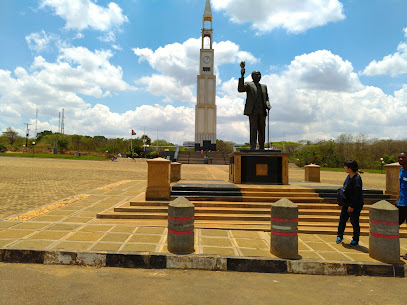
Kuti Wildlife Reserve
Discover the diverse wildlife and stunning landscapes at Kuti Wildlife Reserve, a premier destination for nature lovers in Malawi.
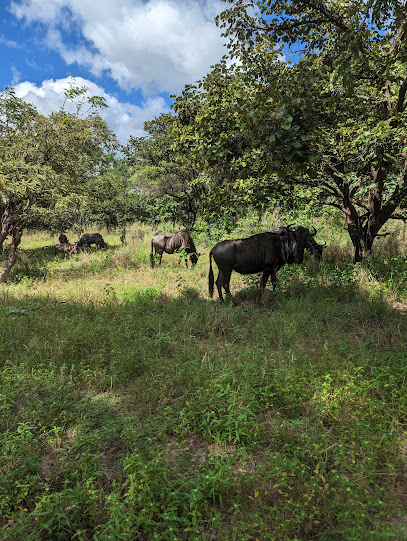
Vwaza Marsh Wildlife Reserve
Explore the breathtaking Vwaza Marsh Wildlife Reserve, a nature lover's paradise offering stunning wildlife encounters and serene landscapes in Malawi.
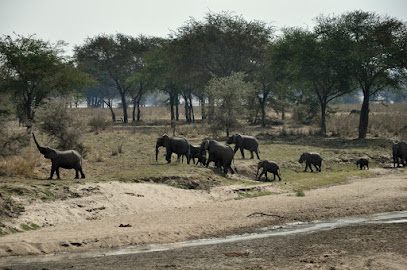
Unmissable attractions to see
Liwonde National Park Main Entrance Gate
Experience the stunning wildlife and breathtaking landscapes of Liwonde National Park, a premier national park in Malawi for nature lovers and adventure seekers.
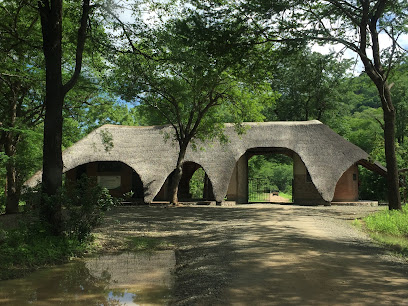
Williams Falls
Experience the breathtaking beauty of Williams Falls in Zomba, Malawi, where nature's wonders await with cascading waters and stunning landscapes.
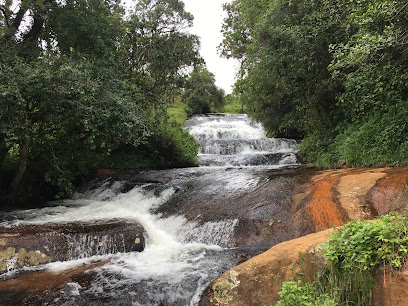
Botanical Garden
Discover the serene beauty of Zomba's Botanical Garden, a lush retreat showcasing Malawi's rich biodiversity and peaceful landscapes.
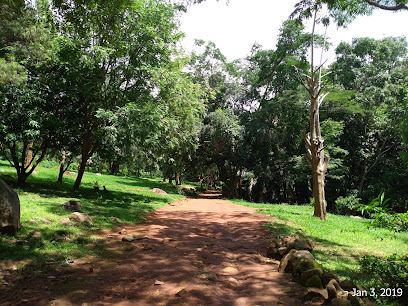
Thyolo Tea Estate
Experience the lush landscapes and rich heritage of Thyolo Tea Estate, a tranquil retreat in Malawi's tea-growing region.
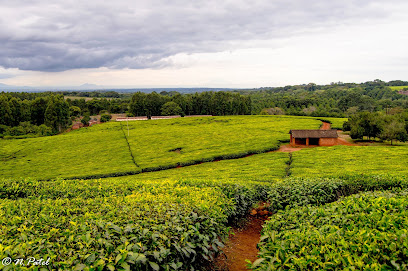
Shire Eco Safari Camp
Discover the breathtaking wildlife and serene landscapes at Shire Eco Safari Camp, Malawi's premier eco-friendly safari destination.
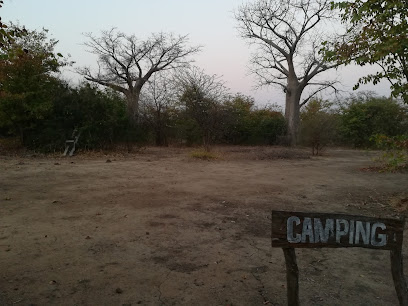
Hills Garden
Explore the serene beauty of Hills Garden in Zomba, a perfect park for relaxation, nature walks, and breathtaking views.
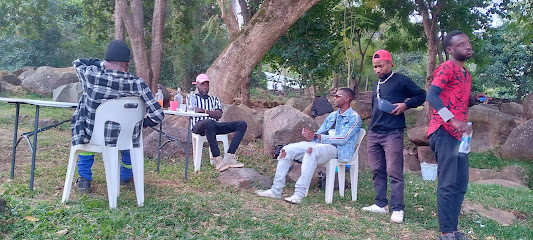
Kutchire Lodge
Experience the wild charm of Kutchire Lodge in Malawi, where nature and adventure intertwine for unforgettable safari experiences.
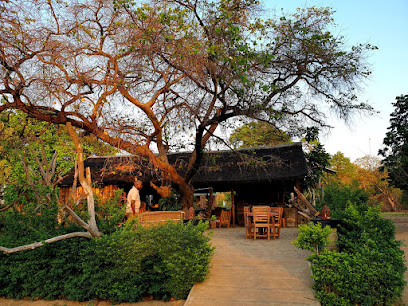
Mangochi war memorial Tower
Explore the Mangochi War Memorial Tower, a poignant tribute to resilience and history amidst the beautiful landscapes of Mangochi.
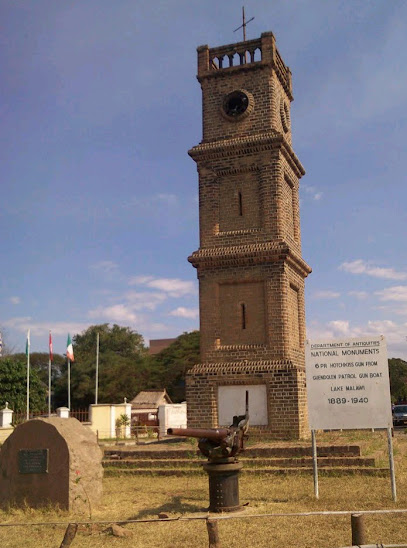
Kumbikano Rocks
Experience the breathtaking beauty and rich cultural heritage of Kumbikano Rocks in Machinga, Malawi, a hidden gem for nature lovers and adventurers.
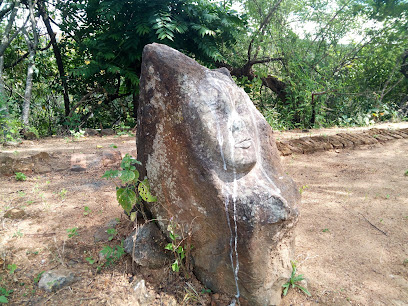
Kabudula potatoe path
Discover the breathtaking beauty of Kabudula Potato Path in Zomba, Malawi, a hiking paradise with stunning views and rich biodiversity.
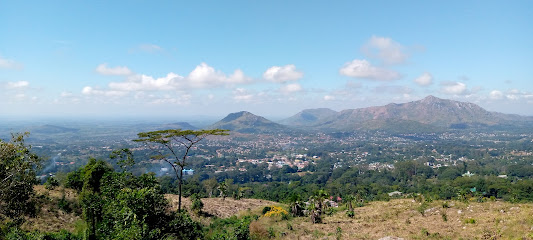
Mpira dam
Discover the tranquil beauty of Mpira Dam, a must-visit tourist attraction in Malawi for nature lovers and adventure seekers.
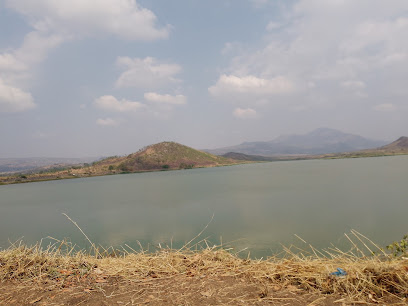
Mphyuphyu Hill
Discover the tranquil beauty of Mphyuphyu Hill, a nature preserve in Mwambo offering stunning views and rich biodiversity for an unforgettable escape.

Mulumbe peak
Experience breathtaking views and a thrilling adventure at Mulumbe Peak, a top hiking destination in Malawi's stunning natural landscape.
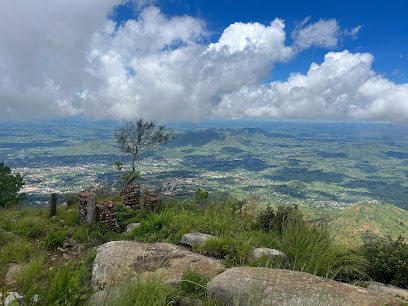
Mulunguzi Dam park
Explore the serene beauty of Mulunguzi Dam Park in Kuchawe, Malawi, a perfect tranquil escape for nature lovers and outdoor enthusiasts.
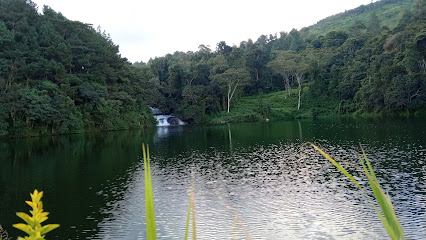
Ndisale Trail
Explore the breathtaking Ndisale Trail in Kuchawe, where natural beauty meets adventure for hikers of all levels.
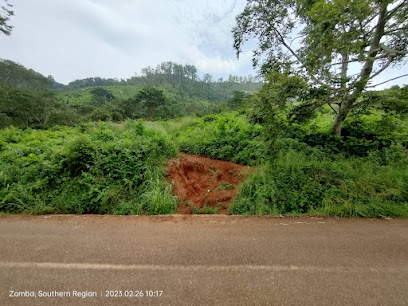
Essential places to dine
Mamma Mia Restaurant
Experience authentic Italian cuisine at Mamma Mia Restaurant in Lilongwe - where flavor meets tradition in every dish.
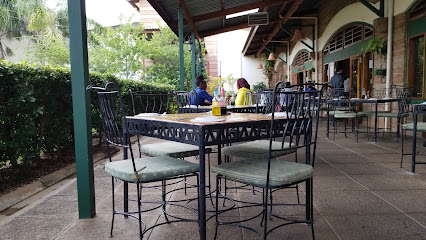
La Cantina
Experience authentic Malawian flavors at La Cantina in Lilongwe - where every meal tells a story.
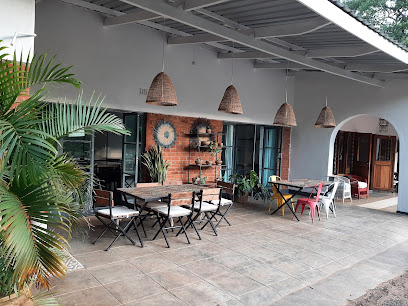
Mediterraneo
Experience authentic Italian cuisine at Mediterraneo in Lilongwe - where every meal is a celebration of flavors.
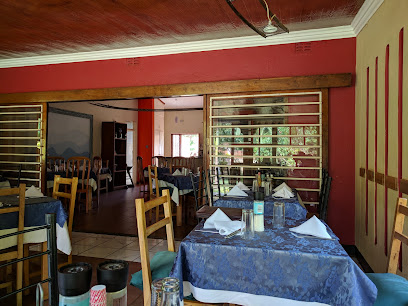
Sana food court
Discover the vibrant flavors of Malawi at Sana Food Court in Lilongwe - an affordable culinary haven for every palate.
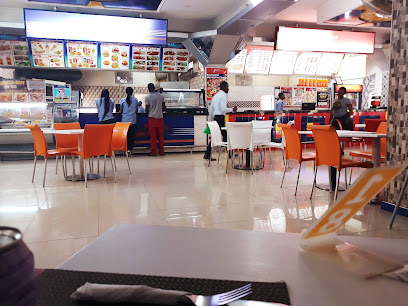
Kefi Hotel Café
Discover the flavors of Malawi at Kefi Hotel Café - where exceptional service meets culinary delight.
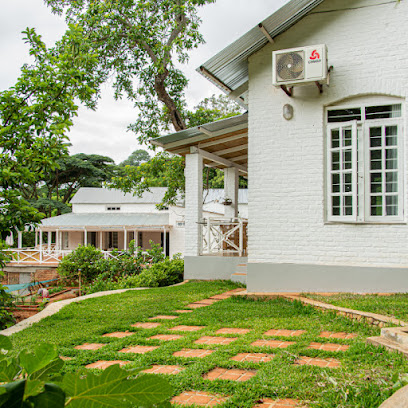
Ama Khofi
Experience the rich flavors of Malawi at Ama Khofi - where local tradition meets modern culinary art.
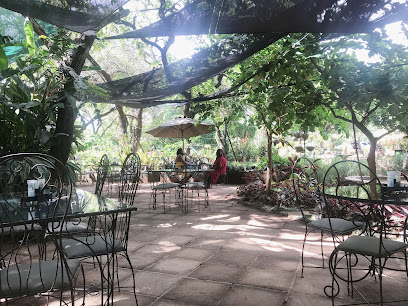
Veg-Delight Lilongwe
Experience authentic Indian vegetarian cuisine at Veg-Delight Lilongwe in Old Town Mall - where flavors come alive!
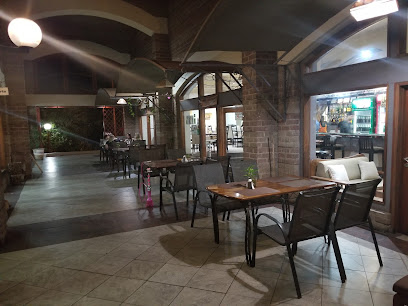
Bombay Palace
Discover authentic Indian cuisine at Bombay Palace in Lilongwe's vibrant city mall – where every meal is a celebration of flavors.
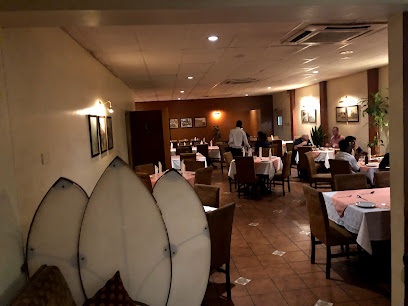
Blend. Lodge & Kitchen
Experience the essence of Zomba at Blend. Lodge & Kitchen - where delicious meals meet warm hospitality.
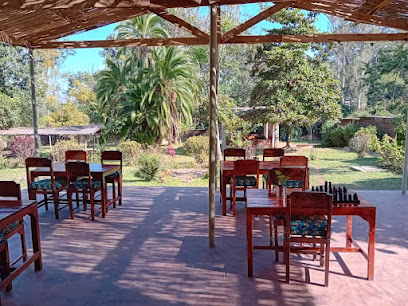
Mum's Table Restaurant
Discover authentic Malawian cuisine at Mum's Table Restaurant in Lilongwe - where every meal tells a story.
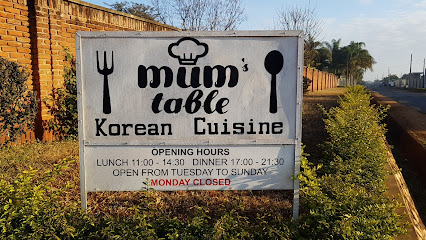
Seble Ethiopian restaurant
Experience authentic Ethiopian flavors at Seble Ethiopian Restaurant in Lilongwe – where every dish tells a story.
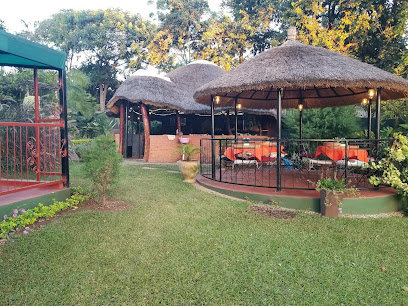
ZATHU Cape Community Kitchen & Bar
Discover authentic Malawian flavors at ZATHU Cape Community Kitchen & Bar in scenic Cape Maclear.
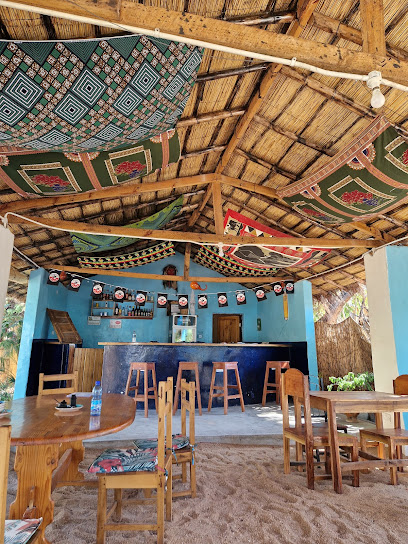
Pa Mthunzi Lounge
Discover culinary delights and vibrant ambiance at Pa Mthunzi Lounge in Lilongwe - your gateway to Malawian flavors.
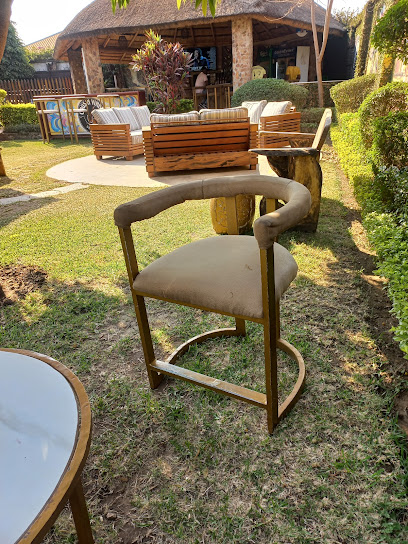
Masamba Gardens and Cafe
Discover Masamba Gardens and Cafe in Lilongwe – where delicious cuisine meets serene garden vibes for an unforgettable dining experience.
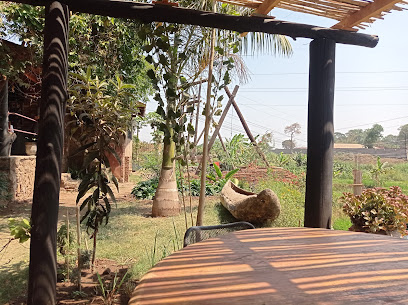
Copper Pot
Experience authentic Indian cuisine at Copper Pot in Lilongwe; where rich flavors meet a vibrant atmosphere.
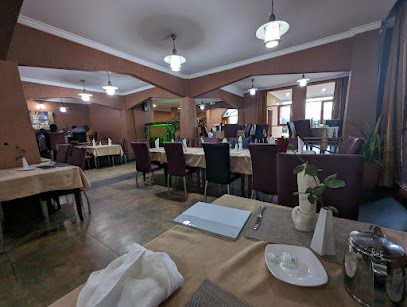
Markets, malls and hidden boutiques
Liwonde National Park
Explore Liwonde National Park, Malawi's premier wildlife sanctuary, where diverse ecosystems meet breathtaking landscapes for an unforgettable adventure.
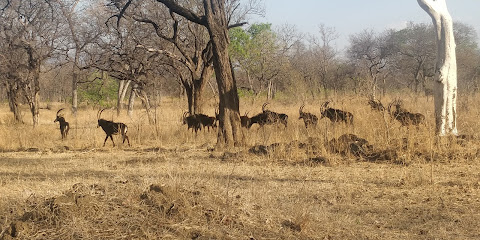
Mangochi Turn Off Curios
Discover local crafts and authentic cuisine at Mangochi Turn Off Curios, a vibrant shopping destination in Malawi.

Nebart General Dealers
Explore the vibrant offerings of Nebart General Dealers in Liwonde, where local crafts meet quality stationery in a welcoming atmosphere.

Yours choice
Experience the authentic taste of Malawi at Liwonde's local grocery store, where culture and community come together in every product.

Drecom Stationery
Explore Drecom Stationery in Liwonde for unique stationery and local crafts that capture the essence of Malawi's creativity.

Shukrani Hardware
Explore Shukrani Hardware in Machinga, Malawi - a local hardware store showcasing craftsmanship and community spirit.

PTC (People's trading centre)
Explore the PTC in Liwonde: A vibrant supermarket showcasing local culture and fresh Malawian produce, perfect for tourists seeking authentic experiences.

Chiunda Dispensary
Discover Chiunda Dispensary in Chikuluma, Malawi - your reliable pharmacy for all health essentials while traveling.

Coffee Shop Zest Gardens
Explore Liwonde through the inviting ambiance and delightful brews at Coffee Shop Zest Gardens, a local favorite for relaxation and refreshment.
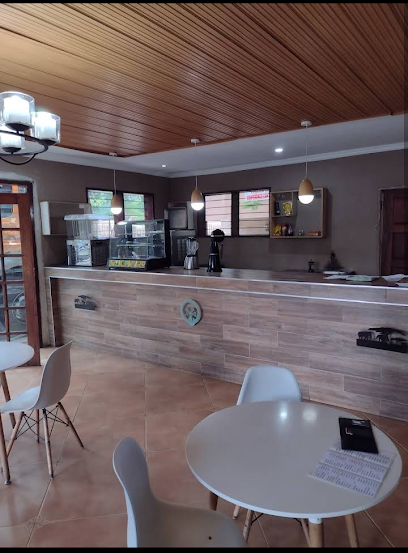
Saka
Explore Saka Bakery in Liwonde for an authentic taste of Malawi's rich culinary traditions and freshly baked delights.

ZIDOLAR FASHION CENTER
Discover unique styles at Zidolar Fashion Center in Ntaja, where local culture meets contemporary fashion in a vibrant shopping experience.

CHISOMO GRAPHICS &TECHNOLOGY PLUS
Explore vibrant creativity at Chisomo Graphics & Technology Plus, your go-to stationery store in Liwonde, Malawi, for unique local crafts and supplies.

SSI Hardware
Explore SSI Hardware in Liwonde for quality tools and materials, perfect for all your DIY and home improvement needs while in Malawi.

Liwonde supermarket
Discover the vibrant Liwonde Supermarket, offering a rich array of local produce and unique goods in the heart of Malawi.

Mbonechela Dispensary
Discover peace of mind at Mbonechela Dispensary in Liwonde, your trusted partner for health and wellness during your travels in Malawi.

Essential bars & hidden hideouts
Chikondi Stopover
Experience the essence of Malawian culture at Chikondi Stopover, a vibrant bar where local flavors and friendly atmosphere unite.
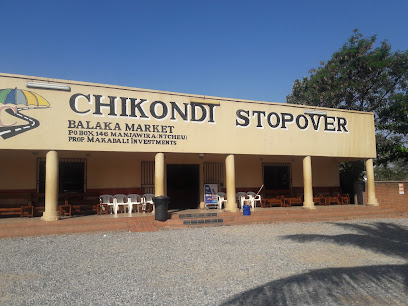
NGD restaurant
Experience the taste of France at NGD Restaurant in Liwonde, where culinary excellence meets a charming atmosphere.
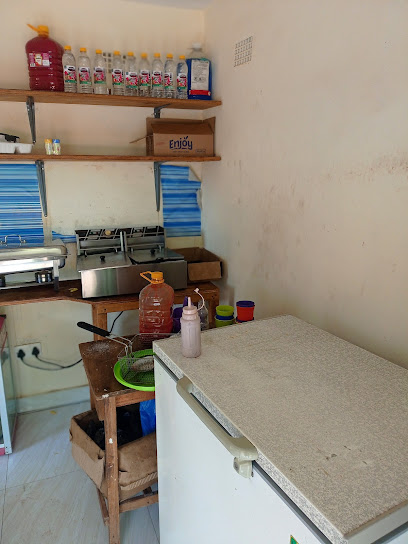
Aunt Love Local Restaurant
Experience authentic Malawian flavors at Aunt Love Local Restaurant in Liwonde, where every dish tells a story of culture and tradition.

DAVIDO LOUNGE
Experience the lively atmosphere and local flavors at Davido Lounge, the perfect bar in Mangochi for tourists to unwind and socialize.
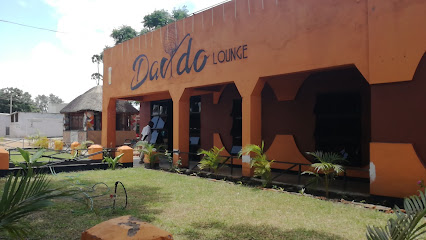
Bar & Grill
Discover the lively Bar & Grill on M1 Road, offering a unique blend of local flavors and an inviting atmosphere for every traveler.
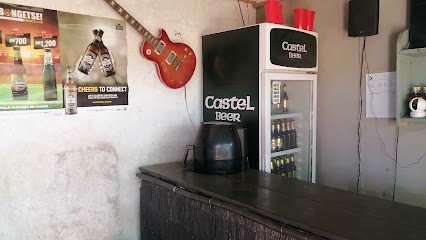
Psalm Restaurant and take away
Discover the rich flavors of Malawi at Psalm Restaurant, a culinary gem in Liwonde offering authentic local dishes in a welcoming atmosphere.

Invani Bar
Experience the lively atmosphere and authentic Malawian hospitality at Invani Bar in Liwonde, where every drink comes with a taste of local culture.
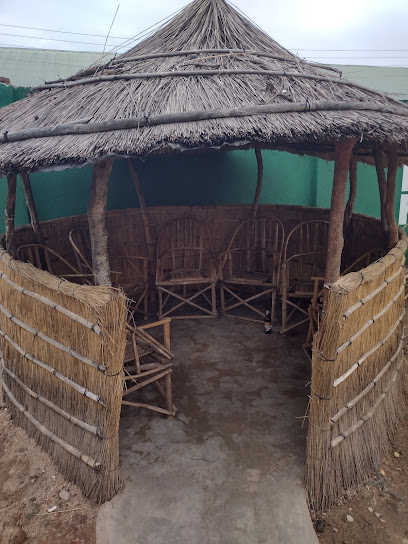
Madam's Restaurant
Experience the authentic taste of Malawi at Madam's Restaurant in Liwonde, where local flavors and warm hospitality come together for a memorable dining experience.
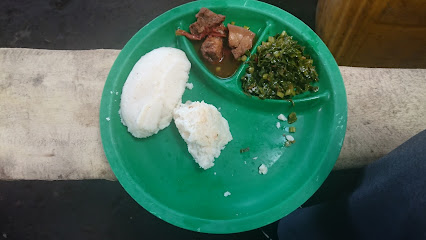
Munyane bar
Experience the vibrant local culture at Munyane Bar in Liwonde, where friendly faces and refreshing drinks await you in a welcoming atmosphere.
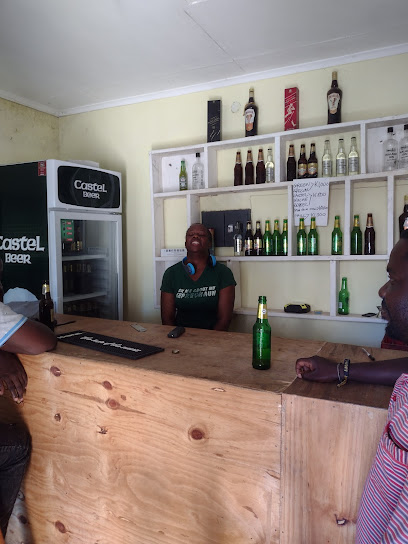
Cairo Bar
Experience the heartbeat of Malawian nightlife at Cairo Bar, where Chibuku and local culture come together in a vibrant atmosphere.
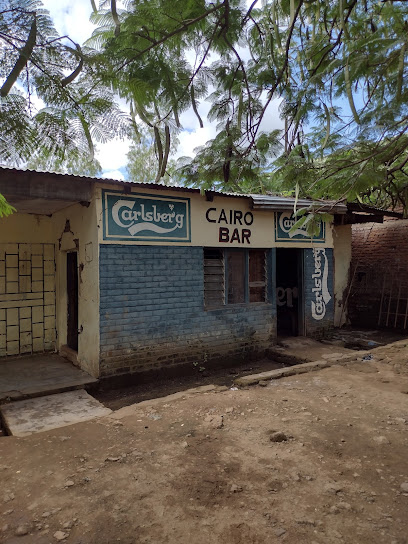
New club 21
Experience vibrant nightlife at New Club 21, a local bar in Liwonde, where friendly faces and great drinks await you.
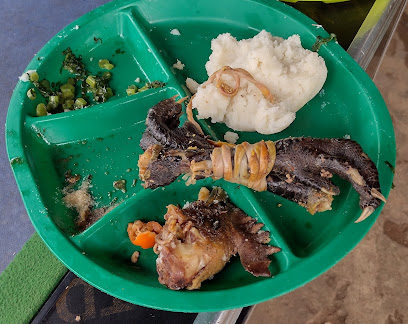
Pa Best
Experience the vibrant atmosphere of Pa Best, Balaka's favorite bar, where local culture meets relaxation in every sip.

NGC Restaurant
Savor the authentic taste of Malawi at NGC Restaurant in Liwonde, where every dish tells a story of local tradition and flavor.

Club Wadidi
Discover the lively nightlife of Club Wadidi in Liwonde, a vibrant bar offering local drinks and a taste of Malawian culture.

Local Phrases about Liwonde National Park
-
- HelloMoni
[Moh-nee] - GoodbyeTionana
[Tyoh-nah-nah] - YesEe
[Ee] - NoAyiyi
[Ah-yee-yee] - Please/You're welcomeChonde
[Chon-deh] - Thank youZikomo
[Zee-koh-moh] - Excuse me/SorryTsopano
[Tsoh-pah-noh] - How are you?Muli bwanji?
[Moo-lee bwan-jee] - Fine. And you?Ndili bwino. Inu?
[Ndee-lee bwee-noh. Ee-noo] - Do you speak English?Mukhulupirira chizungu?
[Moo-koo-loo-pee-ree-rah chee-zoon-goo] - I don't understandSindikudziwa
[Seen-dee-koo-dzee-wah]
- HelloMoni
-
- I'd like to see the menu, pleaseNdimakonda kuona menu, chonde
[Ndee-mah-kohn-dah kwoh-nah men-oo, chon-deh] - I don't eat meatSindidya nyama
[Seen-dee-dyah nyah-mah] - Cheers!Zochita bwino!
[Zoh-chee-tah bwee-noh] - I would like to pay, pleaseNdimakonda kupereka ndalama, chonde
[Ndee-mah-kohn-dah koo-peh-reh-kah ndah-lah-mah, chon-deh]
- I'd like to see the menu, pleaseNdimakonda kuona menu, chonde
-
- Help!Mulongosole!
[Moo-lohn-goh-soh-leh] - Go away!Pita!
[Pee-tah] - Call the Police!Pangani zambiri!
[Pahn-gah-nee zahm-bee-ree] - Call a doctor!Pangani daktari!
[Pahn-gah-nee dahk-tah-ree] - I'm lostNdimanena
[Ndee-mah-neh-nah] - I'm illNdimakonda kukhala wochepa
[Ndee-mah-kohn-dah koo-kah-lah woh-cheh-pah]
- Help!Mulongosole!
-
- I'd like to buy...Ndimakonda kugula...
[Ndee-mah-kohn-dah koo-goo-lah] - I'm just lookingNdimakonda kuyang'ana basi
[Ndee-mah-kohn-dah koo-yahn-gah-nah bah-see] - How much is it?Yavuta bwanji?
[Yah-voo-tah bwan-jee] - That's too expensiveIzi zavuta kwambiri
[Ee-zee zah-voo-tah kwaam-bee-ree] - Can you lower the price?Mungandiyese ndalama?
[Moon-gahn-dee-yeh-seh ndah-lah-mah]
- I'd like to buy...Ndimakonda kugula...
-
- What time is it?Izikhala ndi nthawi yaitali bwanji?
[Ee-zee-kah-lah ndee n-tah-wee yai-tah-lee bwan-jee] - It's one o'clockNdi nthawi yomweyi
[Ndee n-tah-wee yohm-weh-yee] - Half past (10)Chaka chino
[Chah-kah chee-noh] - MorningUsiku
[Oo-see-koo] - AfternoonMawa
[Mah-wah] - EveningM'mawa
[Muh-mah-wah] - YesterdayNkhanza
[Nkahn-zah] - TodayLero
[Leh-roh] - TomorrowMawa
[Mah-wah] - 1Wolimba
[Woh-leem-bah] - 2Zawiri
[Zah-wee-ree] - 3Zatalata
[Zah-tah-lah-tah] - 4Zayiri
[Zah-yee-ree] - 5Zanu
[Zah-noo] - 6Tanu
[Tah-noo] - 7Zalero
[Zah-leh-roh] - 8Zalamba
[Zah-lahm-bah] - 9Zachenda
[Zah-chen-dah] - 10Lumi
[Loo-mee]
- What time is it?Izikhala ndi nthawi yaitali bwanji?
-
- Where's a/the...?Kuli...
[Koo-lee] - What's the address?Ndi address yoti?
[Ndee address yoh-tee] - Can you show me (on the map)?Munganditengeko (pa map)?
[Moon-gahn-dee-tehn-geh-koh (pah map)] - When's the next (bus)?Mwachita nthawi yoti?
[Mwah-chee-tah n-tah-wee yoh-tee] - A ticket (to ....)Ndi tikiti (ku ....)
[Ndee tee-kee-tee (koo)]
- Where's a/the...?Kuli...
History of Liwonde National Park
-
Before the establishment of Liwonde National Park, the area was inhabited by various indigenous tribes, primarily the Chewa people. These communities lived harmoniously with the natural environment, using the forest and river resources for sustenance. Archaeological evidence, including pottery and tools, indicates that human activity in the region dates back several centuries.
-
During the British colonial period in the late 19th and early 20th centuries, the region saw significant changes in land use. The colonial government introduced new agricultural practices and land management strategies, which led to deforestation and habitat loss. These changes impacted the local wildlife population and altered the natural landscape of what is now Liwonde National Park.
-
Liwonde National Park was officially established in 1973 as part of Malawi's efforts to conserve its natural heritage. The park was named after Chief Liwonde, a prominent local leader who played a crucial role in the protection of the area. The establishment of the park marked a significant shift towards wildlife conservation and provided a sanctuary for several endangered species.
-
In the late 20th and early 21st centuries, Liwonde National Park became a focal point for wildlife conservation in Malawi. Several successful reintroduction programs were carried out, including the reintroduction of black rhinos and cheetahs. These efforts have significantly boosted the park's biodiversity and have made it a premier destination for wildlife enthusiasts.
-
Tourism has played a pivotal role in the development of Liwonde National Park. The influx of visitors has brought economic benefits to the local communities and has fostered a greater appreciation for conservation efforts. Various community-based initiatives have also been implemented, ensuring that the local population benefits directly from the park's success.
-
Despite its successes, Liwonde National Park faces ongoing challenges such as poaching, human-wildlife conflict, and climate change. However, continued conservation efforts and sustainable tourism practices hold promise for the future. The park remains a symbol of Malawi's dedication to preserving its natural heritage and offers hope for the continued protection of its unique ecosystems.
Liwonde National Park Essentials
-
Liwonde National Park is located in southern Malawi, approximately 160 kilometers from the capital city, Lilongwe. The nearest airport is Chileka International Airport in Blantyre, around 130 kilometers away. From Blantyre, you can either rent a car or hire a taxi to the park. Alternatively, you can take a bus to Liwonde town from either Lilongwe or Blantyre, and then a short taxi ride to the park entrance.
-
Within Liwonde National Park, the most common modes of transportation are guided game drives and boat safaris. Many lodges and camps offer these services. For getting around the park, a 4x4 vehicle is highly recommended due to the rough terrain. If you prefer to explore on foot, guided walking safaris are available. Additionally, bicycles can be rented for those who wish to explore the surrounding areas at a slower pace.
-
The official currency in Malawi is the Malawian Kwacha (MWK). Credit cards are accepted at most lodges and hotels, but it is advisable to carry cash for smaller purchases and tips. ATMs are available in major towns like Blantyre and Lilongwe, but may be scarce in rural areas, so ensure you withdraw enough cash before heading to the park.
-
Liwonde National Park is generally safe for tourists, but standard precautions should always be taken. Avoid walking alone at night and keep your belongings secure. Be aware of wildlife and always follow the instructions of your guide. While there are no specific high-crime areas targeting tourists within the park, it is advisable to be vigilant in surrounding towns and avoid displaying valuable items.
-
In case of an emergency, dial 997 for police assistance or 998 for medical emergencies. Most lodges and camps have first aid kits and staff trained in basic medical procedures. It is highly recommended to have travel insurance that covers medical emergencies and evacuation. For minor health issues, there are pharmacies in nearby towns like Liwonde.
-
Fashion: Do dress in light, breathable clothing suitable for a safari. Avoid bright colors that may attract insects. Religion: Do respect local customs and traditions. Public Transport: Do be polite and respectful to drivers and fellow passengers. Don't rely on public transport within the park; organized tours are more reliable. Greetings: Do greet people with a friendly 'Muli bwanji' (How are you?). Eating & Drinking: Do try local dishes and accept food offerings graciously. Don't drink tap water; always opt for bottled or purified water.
-
To experience Liwonde National Park like a local, engage with the park rangers and guides, who are often knowledgeable about the area's history and wildlife. Visit local markets in nearby towns for fresh produce and handmade crafts. Participate in community-based tourism activities to gain insight into the local culture and way of life. Don't miss the opportunity to take a boat safari on the Shire River, which offers a unique perspective on the park's diverse wildlife.
Trending Landmarks in Liwonde National Park
-
Lake Malawi National Park
-
Blue Zebra Island Lodge
-
Mvuu Camp
-
Majete Wildlife Reserve
-
Hippo View Lodge
-
Kutchire Lodge
-
Kasungu National Park
-
Likhubula Falls (Dziwe la Nkhalamba)
-
Williams Falls
-
Liwonde National Park Main Entrance Gate
-
Mulanje Massif
-
Mvuu Wilderness Lodge
-
World War I Memorial
-
Kuti Wildlife Reserve
-
Vwaza Marsh Wildlife Reserve
Nearby Cities to Liwonde National Park
-
Things To Do in Zomba
-
Things To Do in Blantyre
-
Things To Do in Salima
-
Things To Do in Lilongwe
-
Things To Do in Chipata
-
Things To Do in Nkhata Bay
-
Things To Do in Mzuzu
-
Things To Do in Nyanga
-
Things To Do in Mutare
-
Things To Do in Karonga
-
Things To Do in Harare
-
Things To Do in Chinhoyi
-
Things To Do in Kasama
-
Things To Do in Mbeya
-
Things To Do in Kariba











